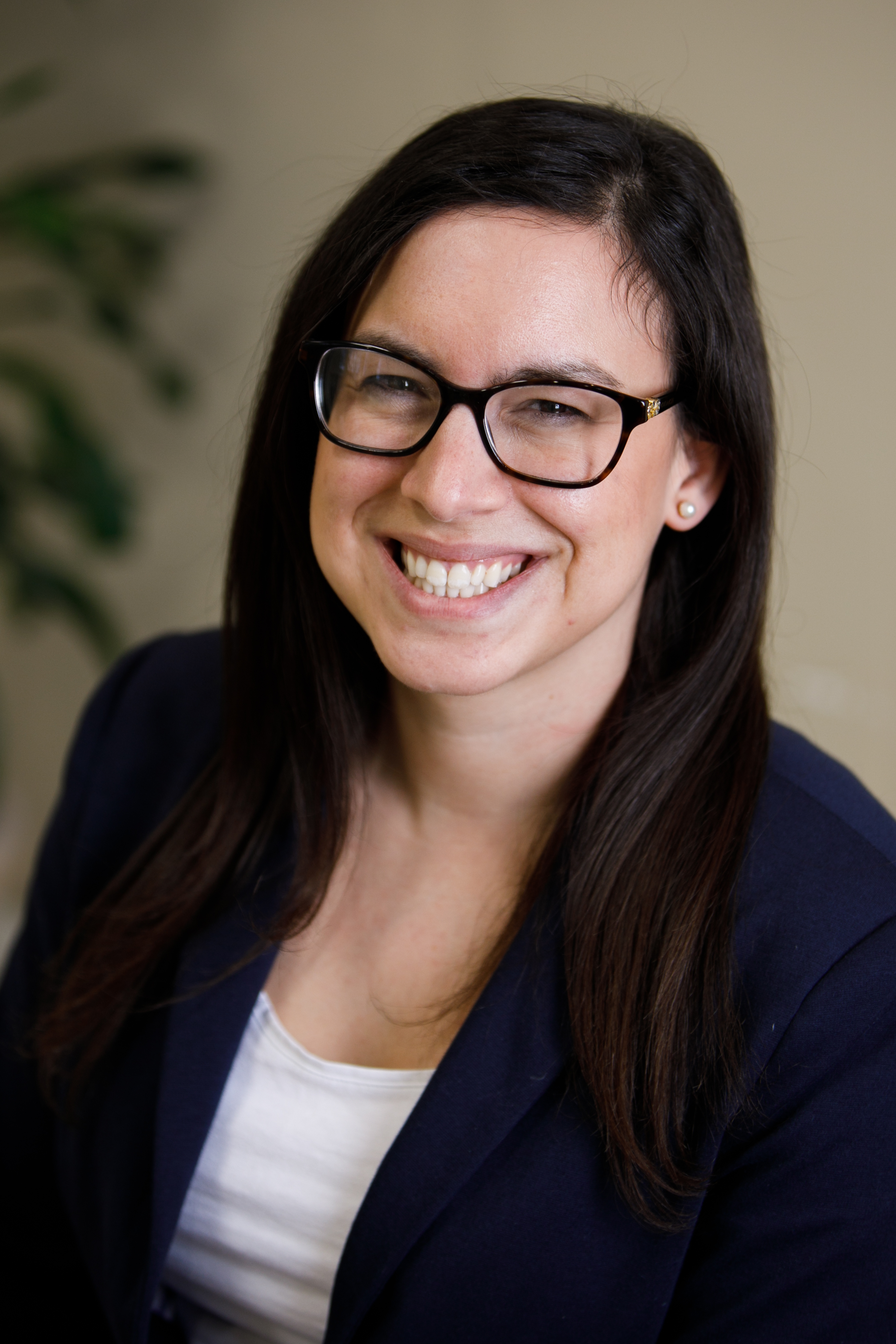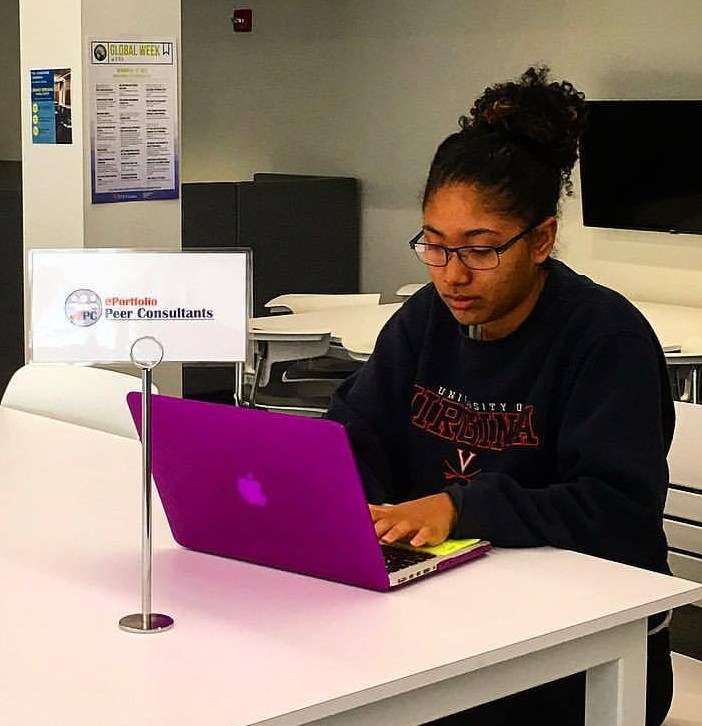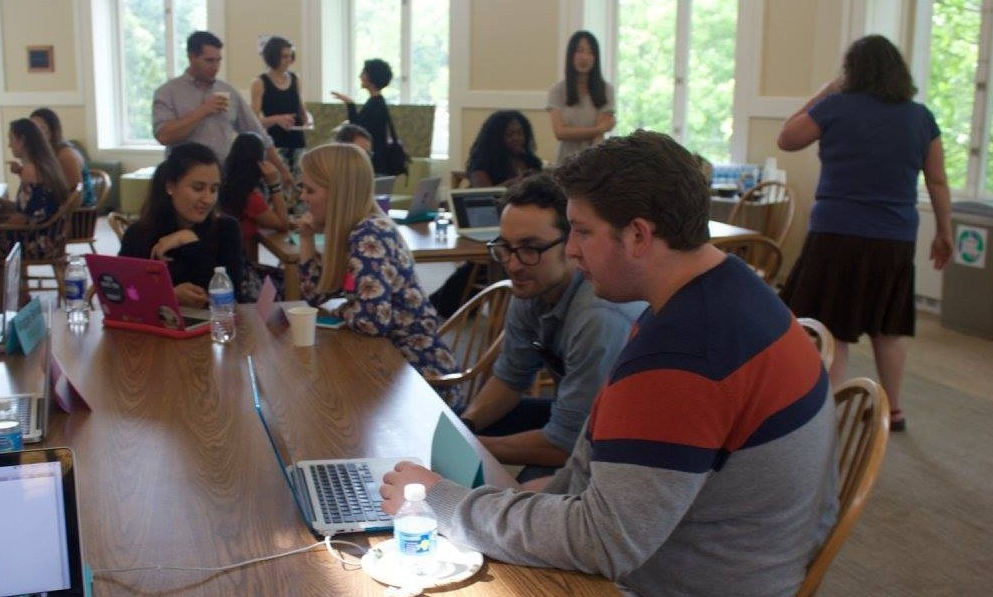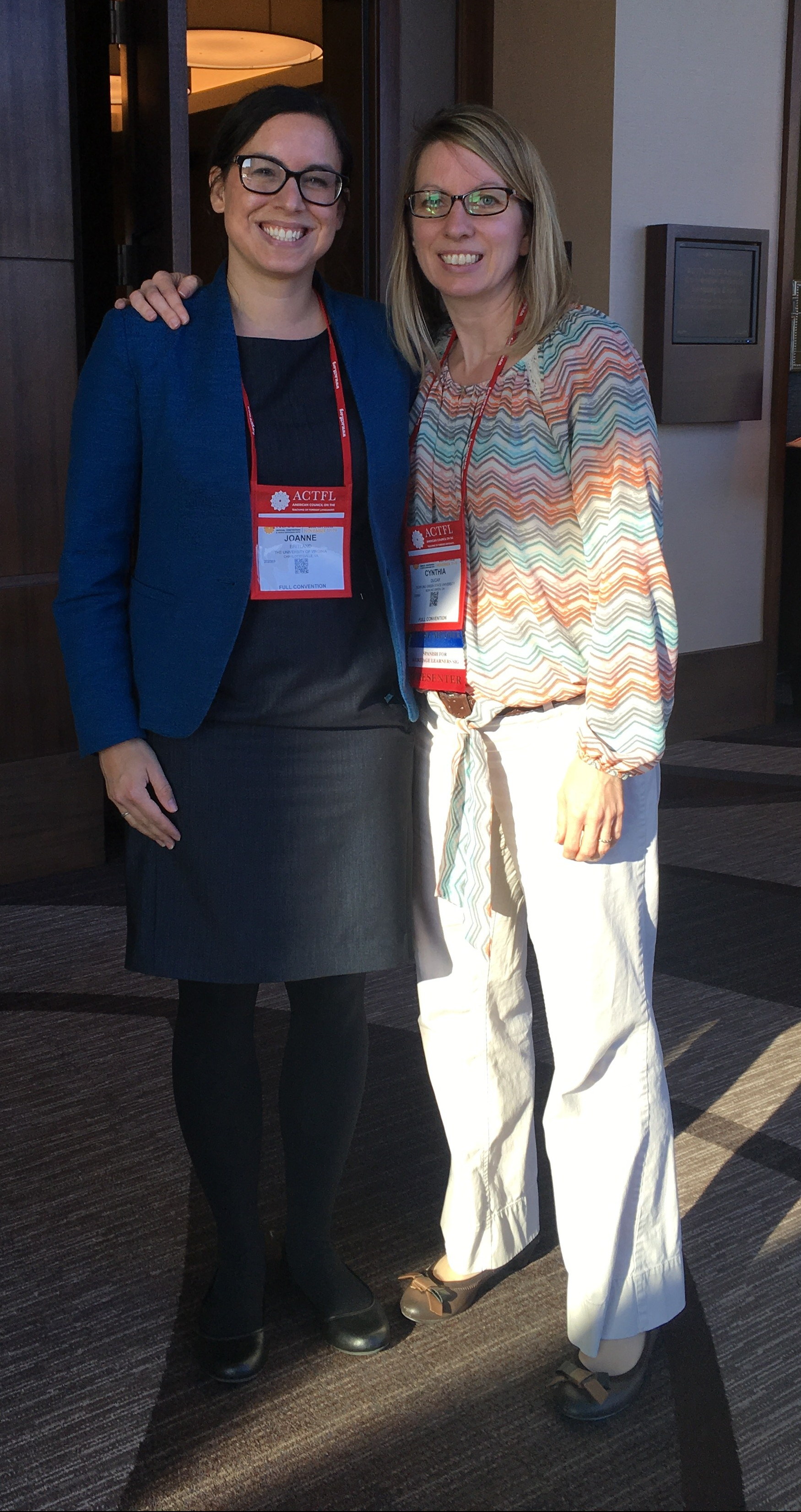 This guest post comes from Joanne Britland, a Ph.D. candidate of Spanish in the UVa Department of Spanish, Italian, and Portuguese. As Project Manager for the Foreign Language Learning ePortfolio Project (FLLeP), she helped coordinate the ePortfolio Peer Consultant (ePPC) program from 2015-2017. She is also a graduate teaching instructor and currently teaches Spanish 3300 (Spanish Texts and Interpretation).
This guest post comes from Joanne Britland, a Ph.D. candidate of Spanish in the UVa Department of Spanish, Italian, and Portuguese. As Project Manager for the Foreign Language Learning ePortfolio Project (FLLeP), she helped coordinate the ePortfolio Peer Consultant (ePPC) program from 2015-2017. She is also a graduate teaching instructor and currently teaches Spanish 3300 (Spanish Texts and Interpretation).
Teaching and learning foreign languages are great passions of mine. I’ve taught Spanish, Portuguese, and English in the United States, Spain, and Brazil in positions at the university, high school, and elementary school levels. Through these experiences, I’ve realized the importance of integrating technology into the classroom and enjoy discovering innovative ways to do so. At the University of Virginia, I’ve had unique opportunities to combine technology with foreign language learning through using ePortfolios in my Spanish courses and by working as Project Manager for the Foreign Language Learning ePortfolio Project group (FLLeP), led by Emily Scida, Karen James, and Yitna Firdyiwek.
ePortfolios in UVA Language Programs: a massive undertaking
Serving as Project Manager has been an exciting role because as a member of the team, I’ve witnessed first-hand the logistics and inner-workings of implementing an ePortfolio program at such a large institution. This execution was no small task; the foreign language ePortfolio project at UVa encompasses 7 foreign language programs in beginning, intermediate, and advanced intermediate language courses (about 95 sections per semester). It involves 60 foreign language faculty and 3,500 students each semester!

Peers as Mentors: the ePortfolio Peer Consultant Program
With so many instructors and students utilizing ePortfolios, technical issues were inevitable, which is why the project leaders designed the ePortfolio Peer Consultant (ePPC) model. At the outset of the program, these consultants were students who had previously taken a foreign language course using ePortfolios in the project’s pilot year. They worked as peer mentors to provide technology support for students enrolled in courses integrating ePortfolios. The ePPC program has since evolved and expanded and now includes students from other disciplines outside of the foreign language departments. The consultants do incredible work mentoring and supporting their peers and instructors. They help with technical issues regarding the ePortfolio platforms, make class visits to introduce ePortfolios to students, and provide office hours for assistance. Furthermore, they are responsible for implementing FolioFest, an event held at the end of each semester for students to showcase their ePortfolios to the university community.

Grad Student Research into Teaching and Learning: everyone benefits!
The ePPC program is truly groundbreaking, and the consultants contribute to the success of the overall foreign language ePortfolio program. However, the benefits are not limited to the students they assist; the program also positively impacts the ePortfolio consultants. For this reason, I decided to explore some of the advantages of the ePPC design beyond providing technology and troubleshooting assistance. More specifically, I wanted to find out how some of the learner-centered goals of ePortfolios in the classroom are also achieved through the ePPC program. This led me to create my own study outside of my work in Hispanic languages and literatures.

When designing the project, I decided to focus on two specific goals: learner autonomy and digital literacy. The results of the study demonstrated that the program fosters these two skills for the ePortfolio consultants as well as the students they assist. I was able to present these findings at the ACTFL (American Council on the Teaching of Foreign Languages) National Convention in Nashville, Tennessee, and at the AAEEBL (Association for Authentic, Experiential, and Evidence-Based Learning) Southeast Regional Conference. It was rewarding to be able to engage with teachers and researchers from around the world and discuss exciting possibilities for using ePortfolios and technology in foreign language education. There is still much to be done in this area of research, and I am currently working on expanding the project to study how additional learner-centered goals are attained through the ePPC program.
_______________
We look forward to learning more about your research soon, Joanne! Thanks for this introduction to your work and the work of the ePPC program at UVA!
